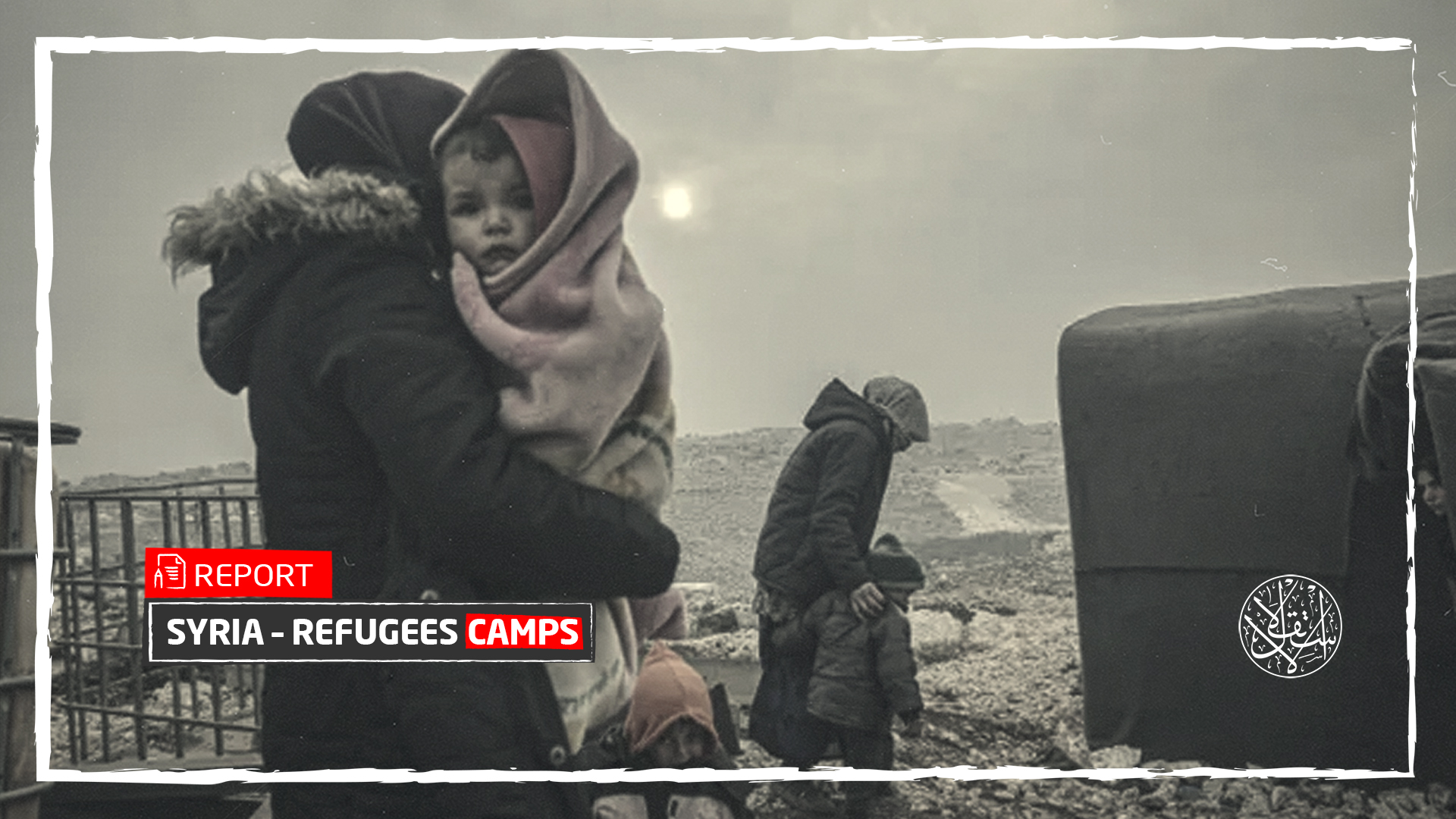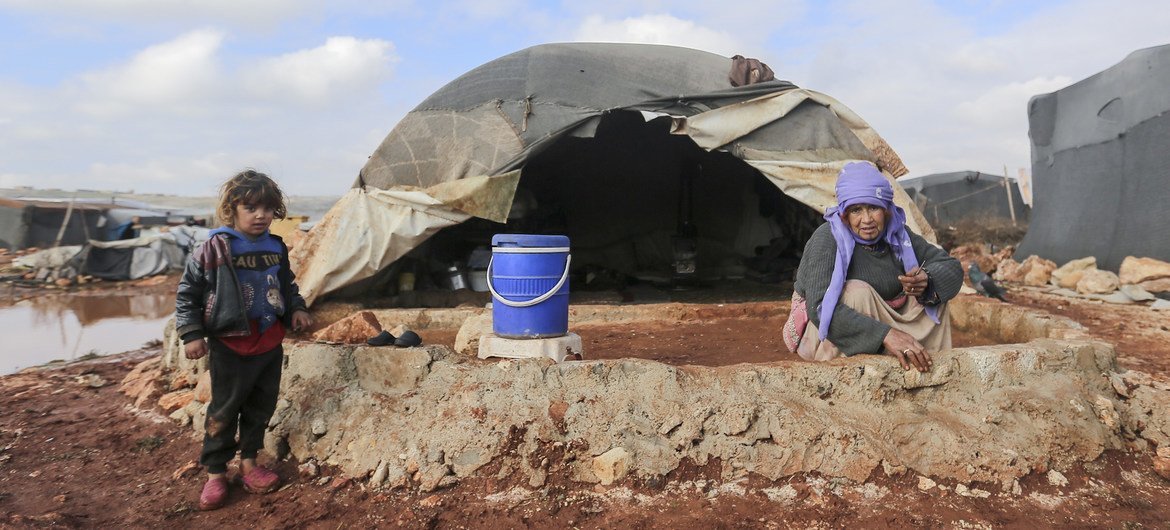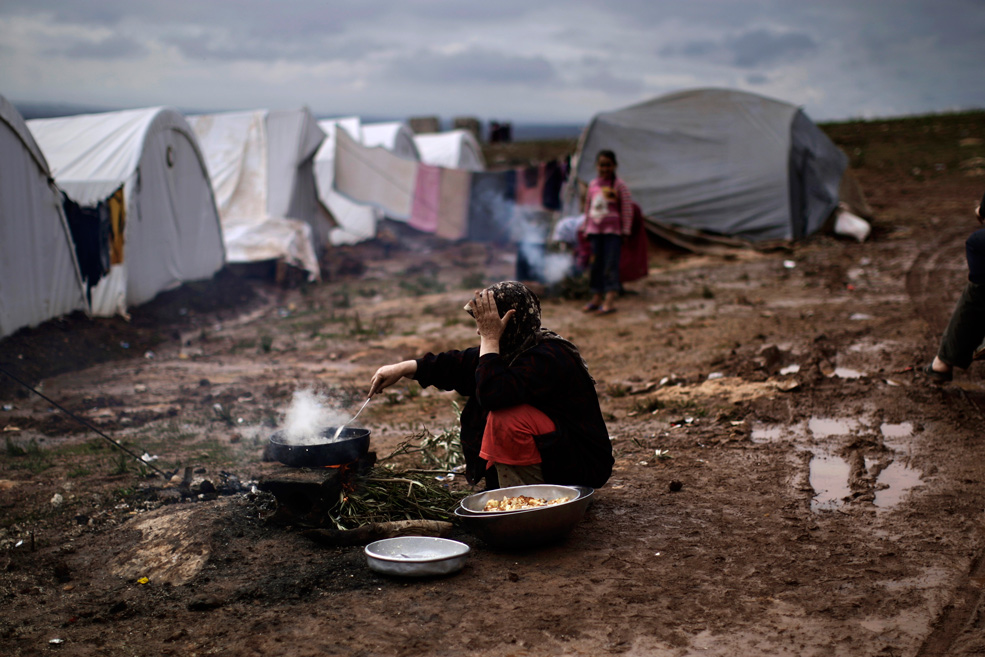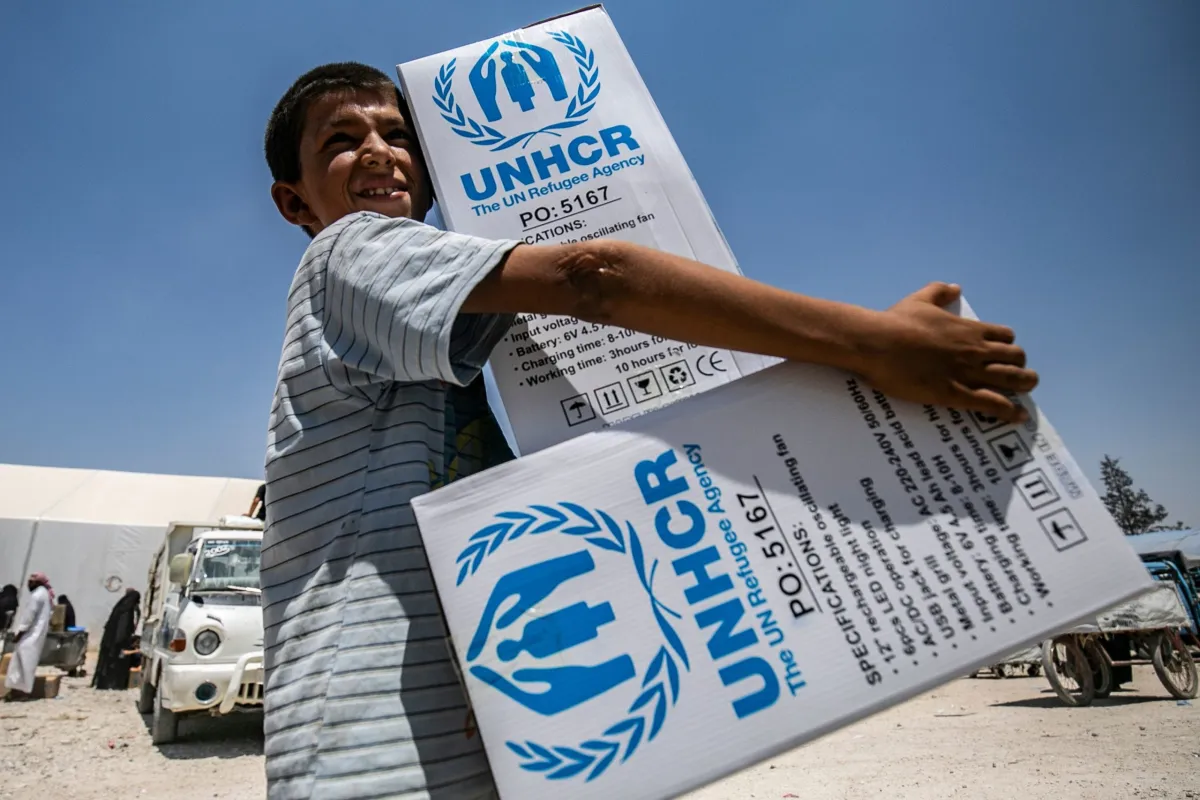Are Women Facing Chronic Violence in Syria’s ‘Widow Camps’?

It has been a year since humanitarian workers allegedly harassed four Syrian women in a camp in the northern countryside of Idlib.
After the incident, a shocking 2022 report by the humanitarian organization, World Vision, showed chronic and high levels of violence and depression among women and children living in some of the hardest-to-reach camps in northwest Syria.
2.8 million Syrians are now living in camps for internally displaced people in the northwest of the country in miserable and poor conditions.
Chronic Depression
In some camps called “widow camps,” children have been found neglected, abused, and forced to work while their mothers are psychologically tired. According to the World Vision’s report, over 80% of women say they do not have adequate healthcare and 95% of them expressed feelings of hopelessness. “About 34% of children said that they have experienced one or more forms of violence and 2% said they married young,” according to the organization. The children were also suffering from child labor with 58% of boys and 49% of girls aged 11 or older being forced to work.
Among the 419 people interviewed by the NGO World Vision in 28 camps representing the home of tens of thousands of single women and their children, nearly one in four women said they had witnessed sexual abuse in the camp.
The report of the World Vision organization comes before the government's engaging conference on Syria in Brussels in May.
According to the UN, funding has decreased and attained its lowest level since 2015 due to what the report said was “donor fatigue and Covid-19”.
Less than half of the Syria humanitarian plan was realized last year. More than 14 million Syrians were in need of help as of last month.
What Are the Impacts?
The World Vision report also focused on the impacts of the Syrian war in some camps that were difficult to reach.
Inside the so-called “widow camps,” in northwest Syria, these women and their children face high levels of violence like verbal, physical, and sexual abuse, as well as child marriage.
The report also mentioned the boys who were at risk of recruitment into armed groups.
In fact, boys older than 11 are considered as male adults by the community, so they were forced to leave the camps, with no job and no home, contrary to their mothers who were not allowed to freely leave the camps, said the NGO.
Unable to gain money to support their families, some of them had “no choice” but to engage in so-called “survival sex” with male guards and camp managers.
The lead author of the report, Alexandra Matei, said: “We are seeing the world, rightly, express solidarity with the victims of the conflict in Ukraine and governments generously committed to doing whatever it takes to meet the humanitarian needs there. But Syrian widows and their children deserve the same level of empathy, compassion, and commitment.”
“Their pain, their desperation, their need is no less than anyone else who is fleeing conflict,” she added.
Fatima, as named in the report, suffers from severe back pain but she is unable to access healthcare and get medicine.
“We do not even have bread and water,” she said. “When [children] ask for bananas, I ask them to be patient. There is nothing we can do. Water and bread are more important.”
Really Dangerous!
On the other hand, the human rights activist, Radwan al-Ali, told Independent Arabia that “in case what was mentioned in the report by World Vision is true, we are facing a humanitarian disaster.”
Al-Ali called for an urgent investigation by the party controlling the region, with 1,300 camps, and nearly three million displaced people in northwestern Syria.
The human rights activist said: “This horrific information should not be revealed, and those who are responsible for harassment and sexual abuse must be immediately arrested.”
“What is remarkable in the report is that women are not allowed to go outside the camps, so they do not earn money, and they are now like detainees inside their camps.”
A human rights activist working in northern Syria stated that there are “some violations, but they are rare, and these accusations hurt relief workers and volunteers who are doing their best to save people, help them, and heal their physical and moral wounds.”
The activist, who preferred not to reveal his name, referred to a rule followed by relief and humanitarian organizations, not to blackmail the people in need, or even exploit them, and if that happens, the organization will take the decision to dismiss them.
“We should not neglect the work of many hardworking and loyal employees at a time when abusers must be punished. Please do not generalize so that injustice does not affect a group that works silently and diligently.”










